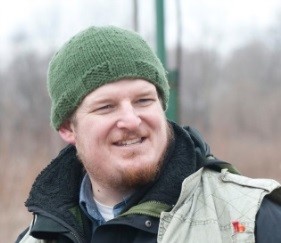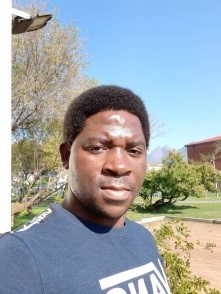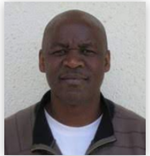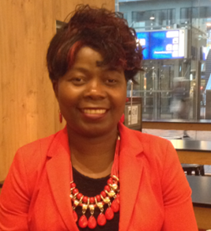
Prof. Paul Kruisic
Paul Kruisic has, for over 40 years, worked professionally in the capacity of a research associate, field expedition leader, and dendrochronologist involved in all aspects related to the acquisition and analysis of various physical and bio-geographical data, particularly tree-ring climate proxy data. In 1985 he was charged with creating the first Tree-Ring Lab in the US Forest Service (FS). By the end of his tenure with the FS facility, the created lab became a national processing centre for the entire agency. Today, many of the methods, hardware and software solutions used in dendrochronology are tools that Paul has developed. It was during the end of his tenure with the Forest Service that he started in 1990, the North American Dendroecological Fieldweek as a means for both bringing dendroecological science to places around the US where there were no such programs, and to learn more himself from those respected leaders in the field at the time. In 1992, he joined the Tree-Ring Lab, at Columbia University’s, Lamont-Doherty Geological Observatory where he was given the opportunity to expand his experiences, and knowledge globally. Today he is the research coordinator for the Department of Geography, at the University of Cambridge, where he coordinates all the laboratory and field expedition work performed by staff and students. In 2017 he left Stockholm University to join his colleague, Professor Ulf Büntgen, to help establish Cambridge University’s first full-service Tree-Ring Lab. Today the lab in Cambridge is one of the most productive in Europe specializing in multi-disciplinary research center around the application of dendrochronological techniques to environmental and human history. Contacts: pk466@cam.ac.uk Profession link: https://www.geog.cam.ac.uk/people/krusic/

Prof. James Speer
James Speer is a Professor of Geography and Geology at Indiana State University. He received his bachelors and master’s degree from the University of Arizona in Geosciences and his PhD from the University of Tennessee in Geography. He is a biogeographer who uses tree-rings to reconstruct environmental variables such as climate change, fire history, and insect outbreaks. He has collected tree-ring samples from around the world, especially in the United States. Through his years of studying environmental history, he has realized that humans are operating outside of the natural range of variability for most natural systems, which has motivated him to give back to society by being a champion for sustainability at Indiana State University and in the Wabash Valley. He has written multiple books including a textbook on dendro-chronology call the "Fundamentals of Tree-Ring Research". More recently, he published popular action adventure novels that teach science through an adventure story in Exposé on Climate Change and Exposé on Sustainability. Contacts: jim.speer@indstate.edu Professional link: https://indstate.academia.edu/JimSpeer/CurriculumVitae

Prof. Matthew Bekker
Matthew F. Bekker is a Professor of Geography at Brigham Young University (BYU) in Provo, Utah, USA. He received a Master’s in Geography from Penn State University and a Ph.D. in Geography from The University of Iowa. His research focuses on the emerging field of quantitative wood anatomy, primarily applied to ecological and climatological questions. He has also published research in historical dendroarchaeology, dendrohydrology, and dendrogeomorphology. He has served as an instructor for several North American Dendroecological Fieldweeks. At BYU he teaches courses in natural hazards, biogeography, and landscape ecology, and serves on the Faculty Advisory Council. He enjoys spending time with family (especially his granddaughter), birding, and attending baseball games. Contacts: matthew_bekker@byu.edu Profession link: https://scholar.google.com/citations?user=Zx7Hua4AAAAJ&hl=en

Dr Charles Mulenga
Charles Mulenga is an enthusiast of environmental research and holds a PhD in Wood Product Science from Stellenbosch University, South Africa, specializing in dendrochemistry and quantitative wood anatomy. He has been working as a lecturer and researcher in the Department of Biomaterials Science and Technology at The Copperbelt University, Zambia since 2014. His research skills and interests revolve around environmental pollution assessments, reconstruction and phytoremediation aimed at environmental and ecological restoration. Dr. Mulenga participated in the 2022 Training in Tree-ring Science and its applications and in most times co-facilitated on the wood anatomy group. Contacts: charlesmulenga20@yahoo.com Professional link: https://scholar.google.com/citations

Dr Francis Munalula
Francis Munalula has been working as a lecturer and researcher in the Faculty of Natural Resources at the Copperbelt University since 2011. Prior to that, he worked in various areas of forestry and wood technology since 1991. He holds a PhD (For), an MSc Forestry and a BSc (Hons) in Wood Products Science from Stellenbosch University in South Africa, and a BSc in Wood Science and Technology from Copperbelt University in Zambia. His expertise lies in the use of tree-rings to understand the interaction between tree growth and variations in environmental conditions. He used the science of dendrochronology in his graduate and postgraduate studies. Francis has been one of the main organizers of the 1st and 2nd African Dendrochronology Field schools held in Zambia in 2021 and 2022, respectively. Contacts: shichipo@gmail.com Professional link:https://scholar.google.co.za/citations?user=1I0GxWUAAAAJ&hl=en

Dr Justine Ngoma
The African Dendrochronology Fieldschool (ADF) is coordinated by Dr. Justine Ngoma. Justine is a lecturer and researcher at the Copperebelt University, focusing her work on the interaction between vegetation and the atmosphere. She applies dendro sciences to conduct climate vulnerability studies on the forests. Justine has been the main coordinator of the two trainings in 2021 and 2022. She participated in The 31st Annual North American Dendroecological Fieldweek (NADEF) which was held in 2022 in Quebec, Canada. She also participated in the similar event in Nepal in 2015 before the 4th International Asian Dendrochronology Conference: Tree Ring and Climate Change. Justine participated in the 2014 Field Week Training in Australia before the 9th International Conference on Dendrochronology. Justine is the winner of the 2021 Florence Hawley Ellis Diversity Award, recognition for promoting tree-ring science in Africa. Contacts: justinangoma@yahoo.com Profession link: https://www.researchgate.net/profile/Justine-Ngoma
